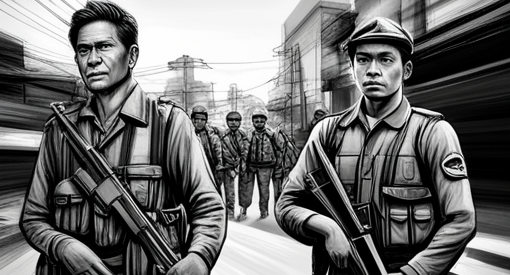The Communist Party of the Philippines (CPP), with its armed wing the New Peoples Army (NPA), has been waging an insurgency in the Philippines since 1969. The NPA has gained notoriety for its violent attacks, including assassinations, bombings, and ambushes. Davao City, located in the southern Philippines, has been a hotspot of NPA activity for decades. But with the Duterte government’s crackdown on left-leaning groups and the signing of the Bangsamoro Organic Law, is the NPA still a force to reckon with in Davao?
The NPA has been present in Davao since the 1970s. The region’s dense forests and mountainous terrain provide ideal hiding places for the guerrilla fighters. In recent years, the NPA has been able to launch attacks on police and military targets, despite the government’s attempts to quell their activities.
One reason for the NPA’s persistence in Davao is its support network among the local Lumad and peasants. The NPA has long advocated for land reform and the protection of Lumad and peasant rights. The Philippine government’s neglect of these marginalized communities has only served to strengthen the NPA’s appeal.
Another factor is the NPA’s ability to adapt to changing circumstances. In the wake of the COVID-19 pandemic, the NPA has shifted its tactics to focus on humanitarian efforts, such as providing relief to communities affected by the pandemic. This has helped the NPA gain support from communities that might otherwise be hostile to them.
However, the NPA’s activities have also caused significant harm to civilians. The group’s use of landmines and other explosives has resulted in numerous civilian casualties. And while the NPA claims to be fighting for the people, their kidnapping and extortion activities suggest otherwise.
While the NPA’s influence in Davao may have waned in recent years, they remain a force to be reckoned with. The group’s persistence, adaptability, and support network have allowed it to continue its insurgency despite government efforts to suppress it. However, the NPA’s tactics have also caused significant harm to civilians, which has eroded the group’s support among some communities. As long as the root causes of the conflict remain unaddressed, the NPA is unlikely to disappear completely.
